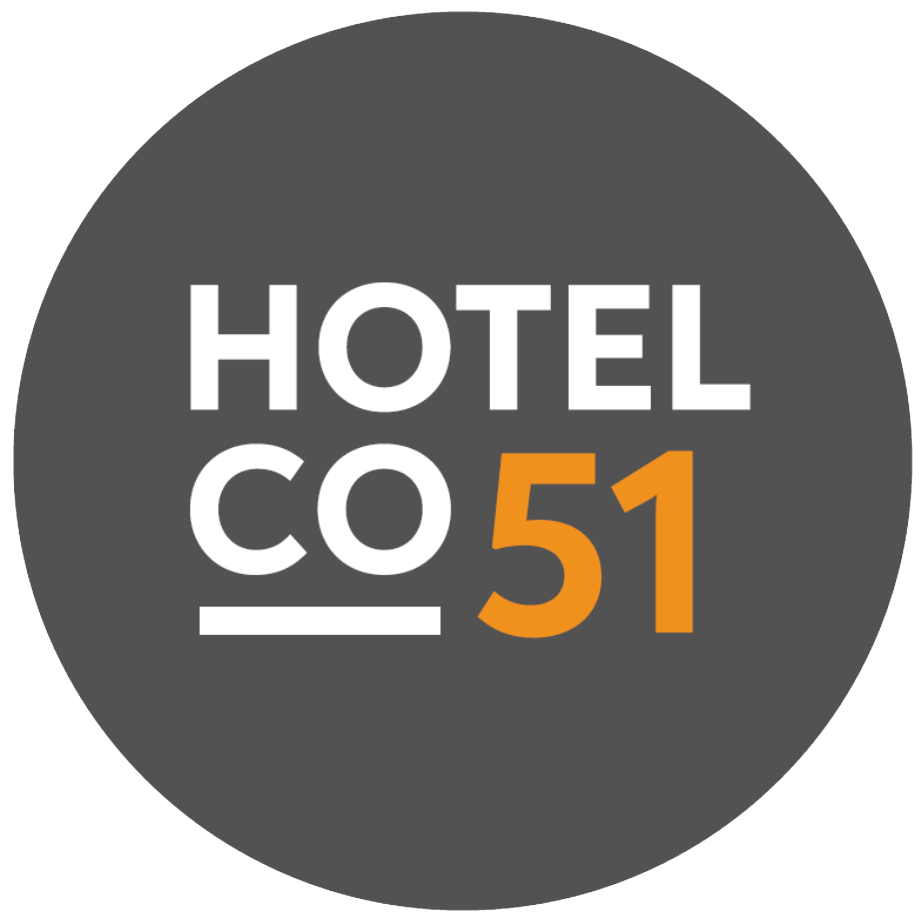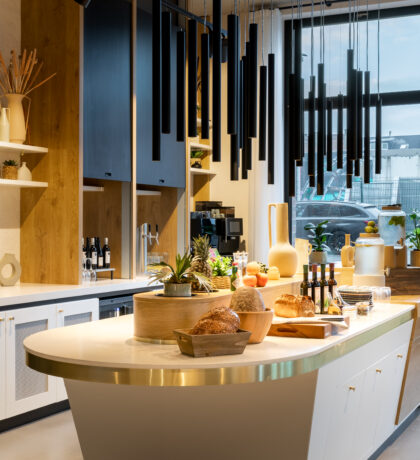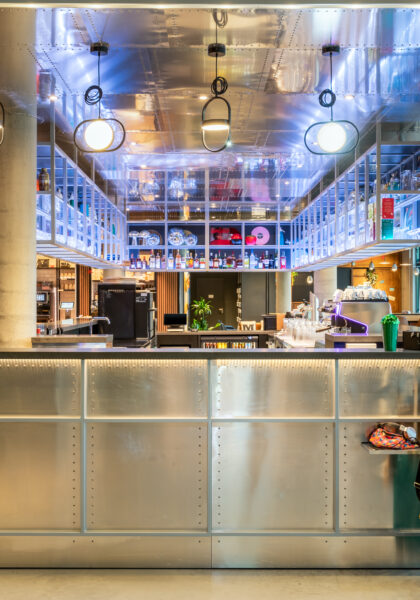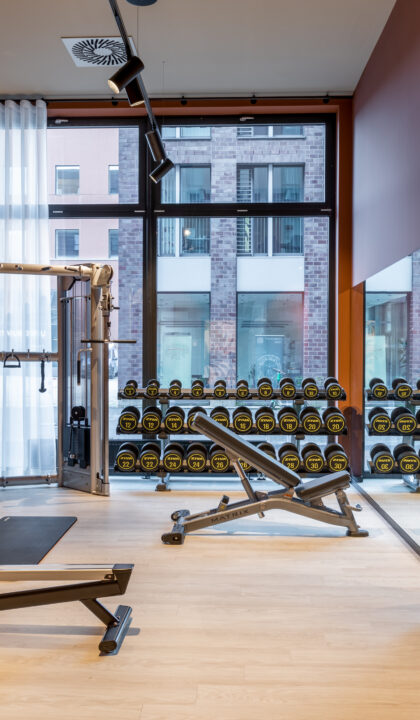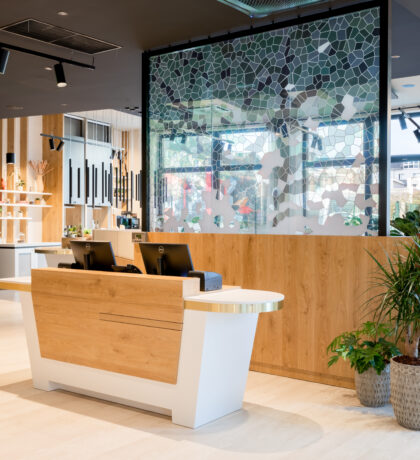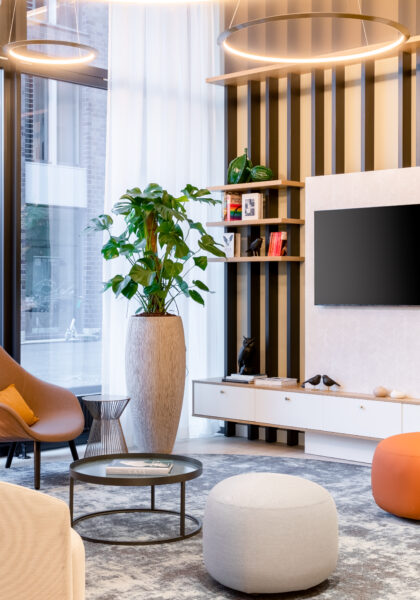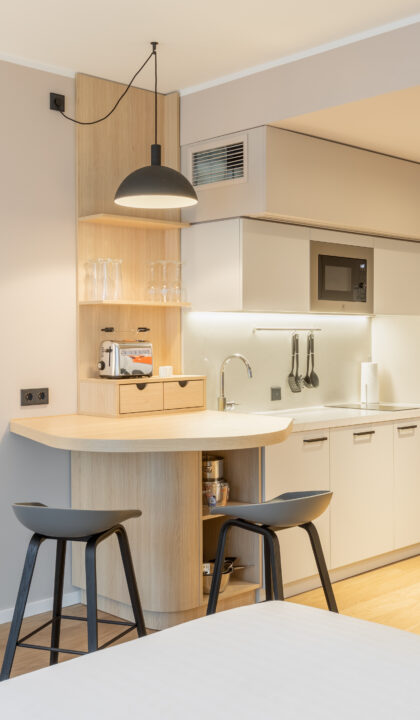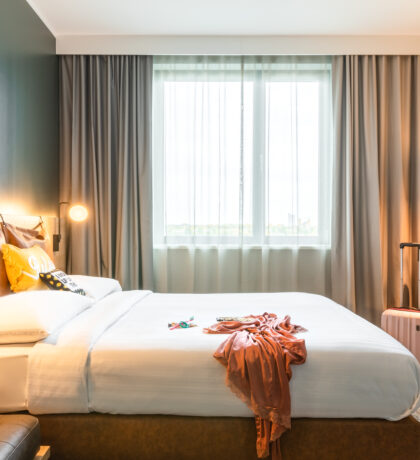HOTEL CO 51: INTERVIEW WITH THE LARGEST MOXY OPERATOR
Hotel Co 51 was founded in 2020 and is based in Amsterdam. It is one of the largest franchise operators for Moxy Hotels in Europe. But the company is still relatively unknown in Germany. We spoke to Morana Rabatic Andric, Regional Director of Operations for Hotel Co 51.
Ms. Rabatic Andric, who is behind Hotel Co 51 and what are the plans for the next few years?
Morana Rabatic Andric: Since its inception in February 2020, Hotel Co 51 has established itself as one of Marriott’s largest franchisees in Europe and is the largest franchise operator for the Moxy Hotels brand worldwide. Hotel Co 51 is an Amsterdam-based European hotel operator specializing in the management of Marriott International’s hotel brands such as Moxy, Courtyard, Residence Inn, and AC by Marriott brands, part of the Vastint group. With its inception in 2020, it became Vastint’s tenth division. The hotels are part of Vastint’s investment portfolio. Our hotels (which are owned and operated) host an average of 2 million guests per year.
Our fast-growing portfolio includes 40 hotels in eight European countries: Belgium, France, Germany, Italy, the Netherlands, Norway, Poland, and the United Kingdom, with properties in strategic locations such as airports and city centers. Having just opened three new hotels in Germany, specifically in Dortmund and Berlin, we are delighted that Germany is our second largest market in Europe with 13 hotels and 2,530 rooms – just behind the UK where we currently have 16 hotels and more in to be opened shortly.
Germany is also currently the only market where Hotel Co 51 operates dual brand properties and we are proud to announce, alongside our successful Moxy/Residence Inn in Essen, Marriott’s latest dual brand venture in the German market in Dortmund. As we continue to grow our portfolio, increase the number of brands we operate and expand into new markets, human resources policy is our top priority. We believe that good hotels depend on great people and that our people are our greatest asset. Our goal is therefore to ensure that our people-centric philosophy helps position Hotel Co 51 as an employer in the hospitality industry, whilst also running some of the most efficient and sustainable hotels in Europe. For example, more and more of our hotels are LEED certified.
Starting a business (especially in hospitality) during the Corona pandemic has certainly not been easy. How did you experience the situation as a hotel operator?
Morana Rabatic Andric: Challenges during the Covid-19 pandemic include managing the changing regulations and requirements in each individual market. This is where Hotel Co 51’s team of experts in each country comes into play. The post-Covid era has brought various challenges for hotel operations, most notably a shortage of staff. This was a big problem when travel regulations eased and occupancy started to rise again.
In addition, we had significant problems with our suppliers in the 2021/22 financial year as they had difficulties with the delivery of raw materials. These problems ranged from difficulties in obtaining laundry to food and drink shortages and affected all areas of the hotels. We had bottlenecks in hotel maintenance and also delivery problems with groceries, all of which put additional pressure.
However, we understood the challenges faced by our supply partners and a flexible and collaborative approach on both sides was extremely important in order for us to solve the challenges. Being part of a Europe-wide team has helped us pull together and support each other to overcome regional difficulties, not only in our 13 German hotels but also across Europe.
Which hotels coped better with the crisis and which were worse?
Morana Rabatic Andric: I wouldn’t say that any particular hotel has dealt with the situation better or worse, but rather that the crisis is and has been more challenging for some regions than for others. For example, the Munich area is known for being particularly difficult to find staff due to the high cost of living.
In addition, we had significant problems with our suppliers in the 2021/22 financial year as they had difficulties with the delivery of raw materials. These problems ranged from difficulties in obtaining laundry to food and drink shortages and affected all areas of the hotels. We had bottlenecks in hotel maintenance and also delivery problems with groceries, all of which put additional pressure on the already ailing hospitality industry.
However, we understood the challenges faced by our supply partners and a flexible and collaborative approach on both sides was extremely important to solve the challenges. Being part of a Europe-wide team has helped us pull together and support each other to overcome regional difficulties, not only in our 13 German hotels but also across Europe.
Which hotels coped better with the crisis and which were worse?
Morana Rabatic Andric: I wouldn’t say that any particular hotel has dealt with the situation better or worse, but rather that the crisis is and has been more challenging for some regions than for others. For example, the Munich area is known for being particularly difficult to find staff due to the high cost of living.
How has the experience of the Corona crisis affected your expansion strategy? How will you choose new locations in the future?
Morana Rabatic Andric: As Hotel Co 51 was established during the pandemic, we are very proud of our continued growth over the past three years. Although the pandemic inevitably affected some of our projects, we completed our projects in Dortmund and Berlin by the end of 2022. After the rapid growth period of recent years, 2023 is a good opportunity for the team to consolidate and refine our plans and ensure Hotel Co 51 is well-positioned for the next phase of growth. The key to this is making sure we are at the forefront of future trends and innovations.
How do the locations affect the design and concept of the hotel?
Morana Rabatic Andric: As professionals in the hospitality industry, we must do our best to research trends and identify guest needs. Because our airport hotels tend to cater to guests who only need to stay one night, we know that these guests are less interested in a wider range of hotels than in other city center locations. For this reason, our hotels in urban areas such as in Berlin, have a greater variety of room categories with different bed options to achieve a good mix of customers.
We also have a number of properties that cater heavily to the leisure traveler. For example, our Moxy Sophia Antipolis near Cannes in the south of France has a pool that appeals more to leisure guests, while our recently opened Paris Val d’Europe hotel caters heavily to families thanks to its proximity to Disneyland Paris, something that is also reflected in the furnishings and the range, from the adventure-oriented garden to the new family-friendly bistro.
At the recent opening in Dortmund, two brands were presented under one roof. Will this also be the case in the future?
Morana Rabatic Andric: The combination of the Moxy and Residence Inn brands is a great opportunity to address different market segments. This allows us to easily expand the room selection by offering guests two different types of accommodation in one good location. The benefit of having two brands under one roof is that we can offer our guests and corporate clients a wider choice of accommodation in one location. At a time when flexibility is an important factor for travelers, this popular concept allows us to better meet the different needs, lengths of stay, and budgets of guests. At the same time, there is no doubt that dual-brand hotels also bring greater operational efficiencies for operators as they share staff and facilities. This flexible concept is already working very well in both Essen and Dortmund. As such, we will continue to consider locations where the owners and we feel combining two hotel styles could work well.
What is the personnel situation at Hotel Co 51 and how does recruiting work?
Morana Rabatic Andric: Recruitment is the biggest challenge facing the hospitality industry around the world and one of the biggest challenges of the 21st century, not only in the hospitality industry. The last few years have shown that the industry really needs to work together to raise awareness of the attractiveness of working in hotels.
For a company that works 24 hours a day, 365 days a year, it’s undoubtedly an industry that can have its challenges. When I was young and started working in the hospitality industry, I had no illusions about how tough it could be, but I was also aware of all the positive aspects of working directly with people and to that contributing to ensuring that they have the best and most beautiful experiences.
As values change and awareness of work-life balance grows, fewer people are willing to work evenings, weekends, or holidays, or to do shift work. However, it seems like a good time to re-show the new generation of workers that hospitality is still a hugely rewarding industry as it offers so many opportunities. Whether it’s being creative and learning new skills or being surrounded by different people from all walks of life and all corners of the world every day, the hospitality industry provides opportunities for people to form relationships and meaningful experiences every day create for our guests.
As we continue to expand our portfolio in Germany and Europe, it is now more important than ever to find new ways of recruiting to ensure we attract and retain the best possible talent for our guests. It is important to address different potential employees – for example those who are considering a career change or mothers who are returning to work. Once we have found the best employees, our top priority is to retain them. While benefits are becoming increasingly important, we also know how important it is for employees to feel valued and part of something bigger. This is one of the reasons why Hotel Co 51 hosts an annual conference for our pan-European teams to create a space where hotels can share best practices and learnings between themselves and where our staff can meet their peers and celebrate achievements.
Finally: In your opinion, what are the most important trends in the hotel industry for the next few years?
The hospitality industry is still a service industry, so our flexibility, and ability to respond to new trends and the needs of the new generations will always be at the heart of what we do. When Hotel Co 51 was founded, we had an ambitious plan to transform the way hotels are run and break new ground with our sustainable, people-centric philosophy. At a time when both partners and guests are realizing the importance of working with companies that meet the highest environmental standards, we believe this will continue to be a factor influencing the way people travel.
Ultimately, it is important that we, as responsible hotel operators, offer our guests the best possible experience
